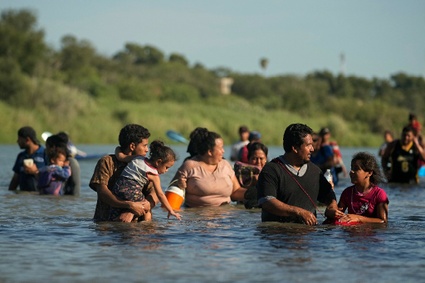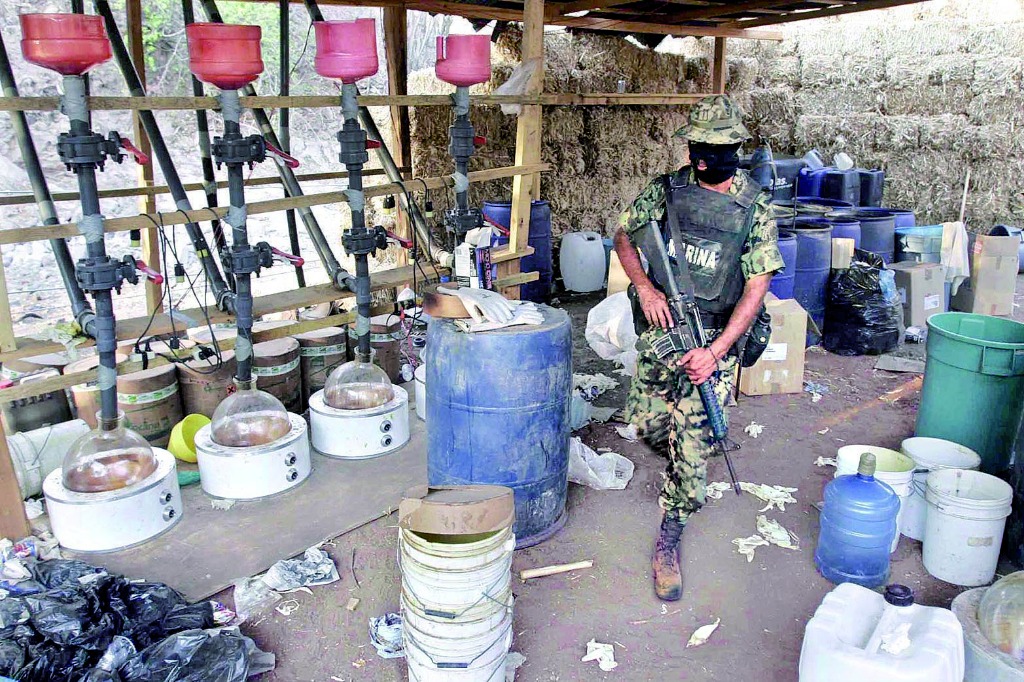
Migration to the United States makes more than 1.1 billion dollars a year for traffickers in Mexico, known as coyotes. Photo AP
Mexico is the country with the most illicit financial channels. The combination of resources from drug trafficking and the transportation of migrants make it one of the most widespread illegal markets in the world, according to official estimates compiled by the United Nations (UN) Department of Economic and Social Affairs.
Drug trafficking (heroin, cocaine, methamphetamine) in Mexico generated, on average, 12.084 billion dollars in annual income from 2015 to 2018; that of migrants generated 1.116 billion dollars annually for entries and 13.8 million dollars for departures each year between 2016 and 2018, a database put together by the organization shows.
According to the indicators – in which less than ten countries collaborate to generate national estimates of illicit financial flows related to drug trafficking, human trafficking and migrant smuggling – Mexico is the country where the most resources derived from those illegal activities are moved.
Only nine of 193 UN Member States have generated these indicators: Afghanistan, Bangladesh, Colombia, Ecuador, Maldives, Mexico, Myanmar, Nepal and Peru. No high-income economy has them, even though some are considered drug market destinations, such as the United States.
In addition to the drug market, which has become the main recipient of illicit money flows to Mexico, the United Nations Office on Drugs and Crime (UNODC) estimates that migration from other countries to the United States earns more than 1.1 billion dollars a year to traffickers, known as coyotes, in the country.
These flows of money are equivalent to the value of air transport of passengers between Mexico and the rest of the world during the same period, another agency, the United Nations Conference on Trade and Development (UNCTAD notes.

Drug trafficking exceeds $12 billion on average each year. Photo ‘La Jornada’
“The enormous profits generated by illicit financial flows from migrant smuggling are likely to be reinvested in illegal markets, fueling further instability, corruption and criminal activities in the region,” UNCTAD notes.
In Colombia, it is estimated that cocaine trafficking generated income of 8,619 million dollars annually between 2015 and 2019, while outflows of illicit financial flows reached 267 million due to the importation of inputs used in the production of the compound.
In Ecuador, the transfer of migrants resulted in illicit financial flows abroad for an average of 13.6 million dollars each year, from 2016 to 2018. In Peru, cocaine trafficking generated entries of 1.482 million between 2015 and 2017, show the estimates gathered by the UN.
Outside the Americas, it is estimated that between 2017 and 2021 drug trafficking (methamphetamine, heroin, and synthetic opioids such as buprenorphine and fentanyl) generated an annual outflow of $481 million in Bangladesh.
Potential exports of opiates generated annual revenues of up to 2,233 million dollars to Afghanistan from 2018 to 2021, and in Myanmar they reached an average of 1,347 million between 2018 and 2022. In the Maldives, drug trafficking (cannabis, heroin, cocaine and ecstasy) has generated annual outputs of 16.4 million dollars between 2020 and 2021.
In Nepal, heroin trafficking generated outgoing illicit financial flows of $4.6 million annually, between 2019 and 2021. In addition, the recruitment of Nepalese migrants exploited in forced labor abroad implied revenues of $3.3 million in 2021, the UNO agencies report.
Along with outright criminal markets, false billing is one of the main sources of illicit financial flows. Global Financial Integrity estimates that the annual value of these resources linked to trade in developing countries reaches 20 percent of their transactions with advanced economies.
“Illicit financial flows hit the world’s most vulnerable hardest as a result of various illicit tax and business practices, illegal markets, corruption and exploitation, draining state revenues, and fostering illegal activities.” They are directly associated with the violation of human rights, such as human trafficking and migrant smuggling, due to the quotas that are required to make the trips, UN agencies report.
Original article by Dora Villanueva at https://www.jornada.com.mx/notas/2023/08/13/economia/mexico-pais-con-mayores-flujos-financieros-ilicitos/
Translated by Schools for Chiapas.
